Festival Theaterformen "Watch & Write" - In Cameroon, Theater for Children is a Success
June 16th, 2018
Little Kids, Big Hits
by Monica Nkodo
Six actors on stage. Three men, three women. Three Cameroonians, three Germans. A striking parity expressed by the play "Do you understand? Verstehste?” played in November 2017 in Yaoundé and Douala, the two largest cities of Cameroon (in Central Africa). From that show for children created by the companies Théâtre du Chocolat (Cameroon) and Theaterhaus Ensemble (Germany), a message of acceptance, understanding and incomprehension results. How to live together when we are not of the same origin, we do not have the same education, the same past?
Concerns that may seem too existential for a young audience of 5 to 12 years old. But nothing is too complex to be explained to toddlers, according to Etoundi Zeyang, actor and stage director, director of the Théâtre du Chocolat created in 1981 and founder of the African Theater Festival for Children and Youth (FATEJ) the first edition of which was held in 1996. For him, it is crucial to address children about the future and the development of the community. To achieve that, accoring to him it would be enough to focus on the method and channel by which to convey that message to the young audience, without traumatizing them, or breaking their innocent dreams. In Cameroon, the theater for children, with associations such as FATEJ and the Festival of Arts and Theater for African Children (FATEA), have gleaned beautiful and long years of conquest.
Children who deprive themselves of their snacks for a theater ticket
For more than 35 years, the concept of the Théâtre du Chocolat teaches the youngest members of Cameroonian society how to become responsible adults. For Etoundi Zeyang, there is no better time than childhood to discover passions and arouse vocations. In their debut, the actors of the Théâtre du Chocolat toured the schools of Yaoundé, the capital, becoming true "rock stars" for primary and kindergarten students.
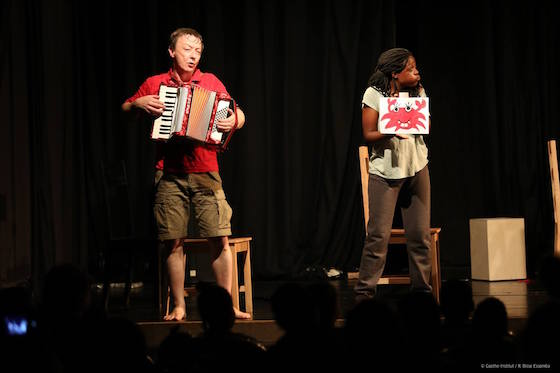 Théâtre du Chocolat's "Tu comprends? Verstehste?" in Cameroon's capital Yaoundé in 2017
Théâtre du Chocolat's "Tu comprends? Verstehste?" in Cameroon's capital Yaoundé in 2017
© Goethe-Institut / R. Bisse Essomba
To attend their successful plays, one had to spend 200 XAF (0.30 Euros). In order to have one of these precious tickets, some children used their savings. I admit that I was one of them. I was so excited to see the show that I would sacrifice my weekly allowance. We didn’t have a cinema hall and it was expensive to get entertainment for oneself. With the Théâtre du Chocolat, no need to spend much money. They are coming to you. Bobbo and Mangetou, the two main characters of the Company, made their entrance in the school playground to the thunderous claps of a public full of students. The concept of the Théâtre du Chocolat was to demonstrate the power of education through theater.
After thirty years and many performances in the capital, the organization FATEJ run by Etoundi Zeyang decided to extend its activities to the whole country through a program called "Theater for school, theater for all". As he declared, it is a project to democratize and decentralize theater. Etoundi Zeyang asked himself "why a child living in a village could not see a show in the same environment and technical conditions as a child living in Yaoundé or in Douala could?" . Taking this opinion, Zeyang and his troupe have been touring the entire country. In two tours, they have visited three other regions (Cameroon comprises ten regions): the East, the South and the Center, with the intent of going later to other communes in the country. This project was a success.
In the countryside, adults come in large numbers
It must be recognized that in rural areas and other small communes of Cameroon, entertainment is not legion. The audience of shows for children sees its ranks enlarged by adults and even seniors. This new adventure has allowed the theaters to glean thousands of other fans across the country, with, sometimes, huge shows in the public squares of the small towns visited. For parents, teachers and even the local authorities of these communes, the plays of the Théâtre du Chocolat are complementary to the education given to their children on school benches and at home.
The Théâtre du Chocolat is not the only success-story in terms of shows for young audiences in Cameroon. Among the best-known institutions is the Festival of Arts and Theater for African Children (FATEA), quoted above, founded by Bienvenu Mbala, known by his artist name of Bengoula Show. Against winds and tides, he has managed to exist and continue this annual event for more than 30 years. The month of July is generally the period chosen to launch the season of its festival.
In a public school, the FATEA teams settle down and for a week, they propose various animations: plays, traditional dance and music competitions, lessons in different languages. For Bienvenu Mbala, the essence of culture must be preserved, and its best vectors are children: "They are our tomorrows, they say, and to let them know their roots and their culture is the best way to teach them who they really are. And what's better than this powerful art that is theater, able to put actors in direct contact with their audience, which here in this case is composed of children," as Bienvenu Mbala puts it.
Encounters at eye level
What can explain the success and longevity of these two children’s entertainment organizations, in a country where festivals are dying as fast as they are created, for lack of financial resources? "Every season is a terrible battle for funding. What's driving us is the passion, the belief that what we do is for the sake of children today, and for the blossoming of culture later," says Etoundi Zeyang. To cope with the lack of finances, they partner with other companies for young audiences in other countries, particularly in Europe.
One of the first assets of these promoters of children’s shows is to treat their audience as art consumers in their own right. "Only because they are toddlers it is not necessary to tell them babbling that only amuses them until a certain age," certifies Bienvenu Mbala. The president of FATEA is a graduate in theater pedagogy. Well placed to know that children's theater is not a formality. "A little fun, kids," you can think. Prejudice. Many parameters such as acting, a staging adapted to young audiences, costumes and accessories, have to be considered to make these kids laugh and captivate their attention. "The children's theater actor has three weapons: the face, the voice and the body. He must immerse himself in the role, return to childhood, because it is necessary that the little ones recognize themselves in him," explains Bienvenu Mbala.
Gestures are a great help in passing the message. "In kindergarten, we do not need speech, but movements. Everything that moves in front of the children wakes them up. Without animation, there is no children's theater," says Mbala. For him, the comedy is exploited to its maximum, because the final goal of the show is that the small spectators are happy. The choice of topics to be addressed is crucial. "Food, play, family – like grandfather, grandmother, dad, mom, – but also fight, love," quotes Bienvenu Mbala.
That's why at the Etoundi Zeyang Théâtre du Chocolat, food is often at the heart of the plot. It is through this central element that his troupe captivates the attention of children in its shows as "Abok (The Party)", "The Treacheries of Mangetou", "The Two Thieves", "Abole", etc. In general, Mangetou, absolute glutton, has the wrong role. He refuses to share his meals with others, is insatiable and secretive. All the opposite of Bobbo, always ready to give away a piece of his bread, a piece of meat or a candy. The actors use this element essential to survival to introduce children to the notions of sharing, solidarity, hard work, brotherhood, love. And this message catches the children's attention – in a wonderfully light and playful way.
Monica Nkodo is a journalist who lives and works in Cameroon. She has been responsible of the Culture Desk of Cameroon Tribune, a bilingual national daily newspaper, for five years, and is particularly interested in theater and cinema, two disciplines that currently have their thematic pages in this nationally distributed newspaper.
Hier findet sich die deutsche Übersetzung des Artikels.
Here Milisuthando Bongela writes about the situation of cultural journalism on the African continent. Yvon Edoumou questions whether art in Kinshasa is accessible for "poor" people. Stéphanie Dongmo portraits the theatre director Martin Ambara from Cameroon (in German). Ismael Fayed writes about the production "Saigon" by Caroline Guiela Nguyen and Les Hommes Approximatifs. Enos Nyamor reports on Kenyan theatre today, Aboubacar Demba Cissokho covers theatre in Senegal (in German). Carla Lever writes on Cape Town theatres that are challenging South Africa's cultural post-Apartheid segregation.
This text is a product of "Theaterformen" festival's journalistic project "Watch & Write" and is being published on nachtkritik.de in the context of a media cooperation with the festival. It is not part of the regular programme on nachtkritik.de.
Schön, dass Sie diesen Text gelesen haben
Unsere Kritiken sind für alle kostenlos. Aber Theaterkritik kostet Geld. Unterstützen Sie uns mit Ihrem Beitrag, damit wir weiter für Sie schreiben können.
mehr nachtkritiken
meldungen >
- 17. April 2024 Autor und Regisseur René Pollesch in Berlin beigesetzt
- 17. April 2024 London: Die Sieger der Olivier Awards 2024
- 17. April 2024 Dresden: Mäzen Bernhard von Loeffelholz verstorben
- 15. April 2024 Würzburg: Intendant Markus Trabusch geht
- 15. April 2024 Französischer Kulturorden für Elfriede Jelinek
- 13. April 2024 Braunschweig: LOT-Theater stellt Betrieb ein
- 13. April 2024 Theater Hagen: Neuer Intendant ernannt
- 12. April 2024 Landesbühnentage 2024 erstmals dezentral


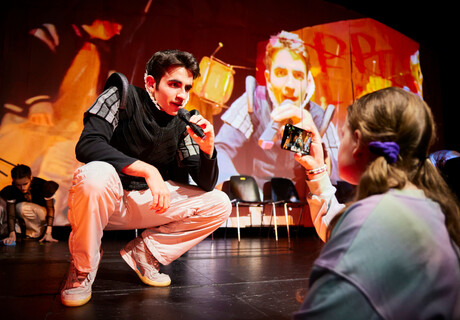
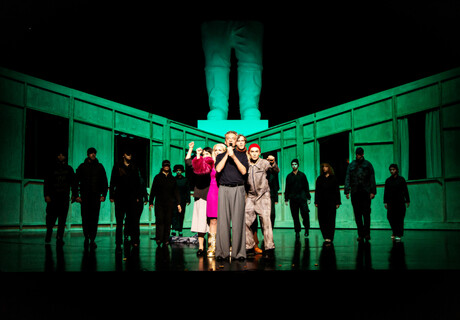
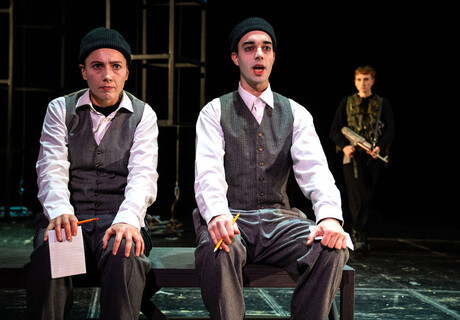
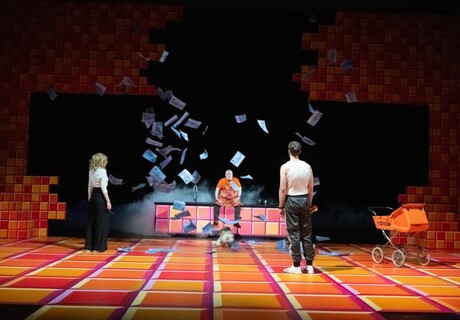
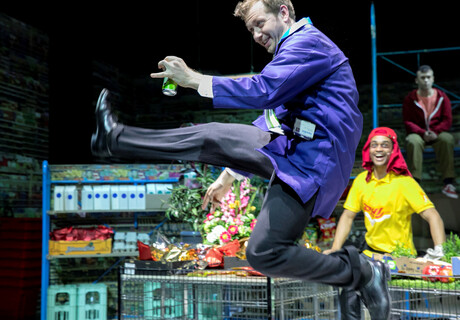
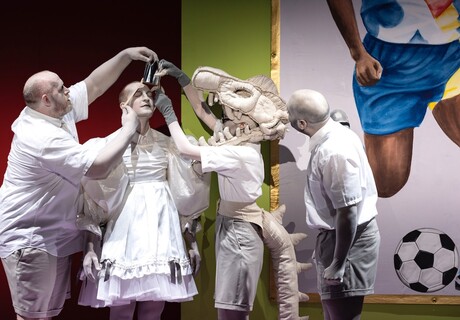
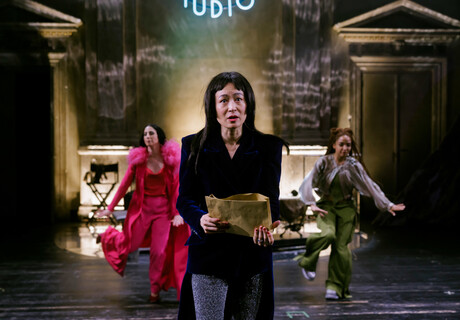
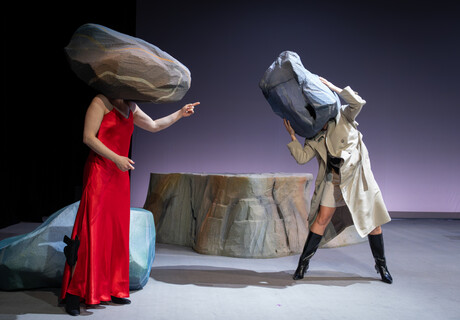
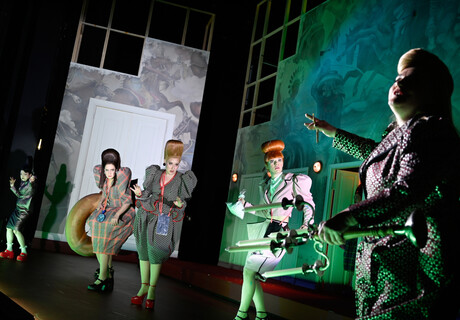
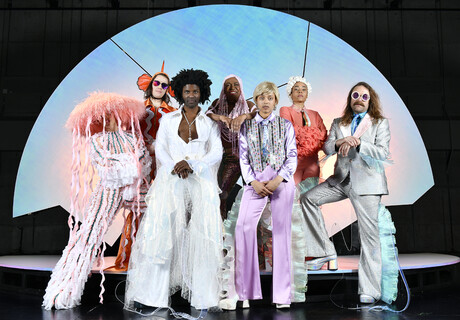
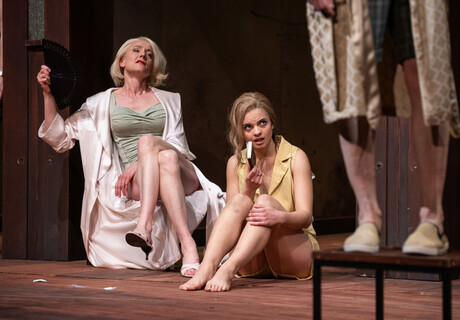
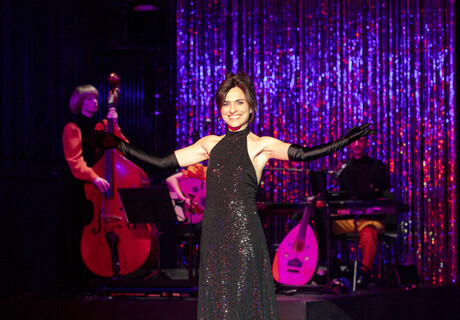
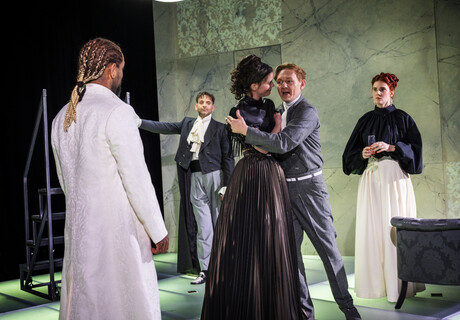
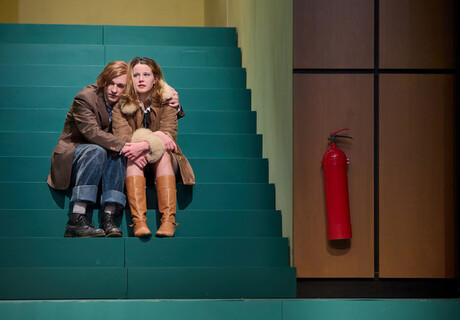
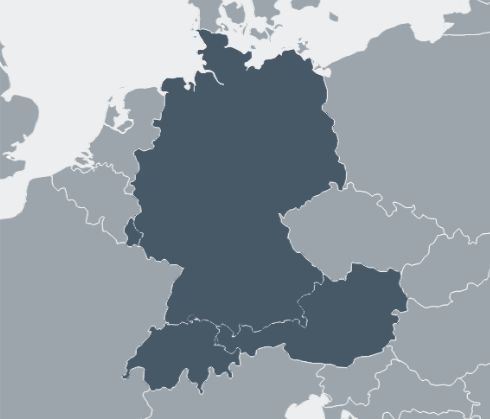

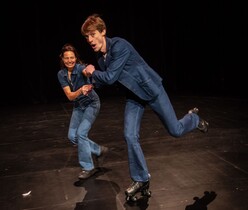



neueste kommentare >